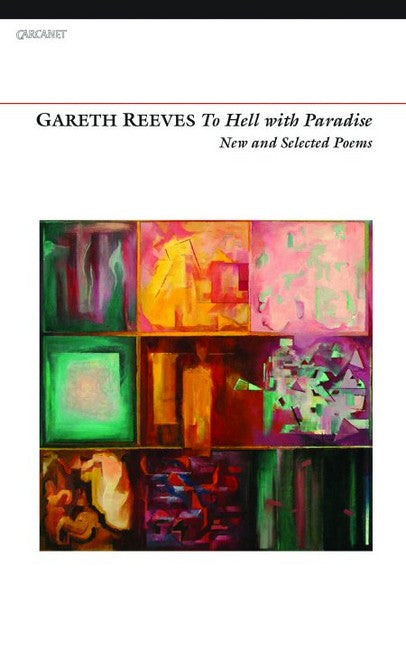Gareth Reeves studied at the University of Oxford and at Stanford University, where he held a Wallace Stegner Writing Fellowship. He is currently part-time Reader in English at Durham University, where he runs an MA creative writing course in poetry. Carcanet Press have published two previous collections of his poetry, Real Stories (1984) and Listening In (1993). He is also the author of two books on T.S. Eliot, a book on poetry of the 1930s (with Michael O'Neill), and many essays on nineteenth- and twentieth-century English, American and Irish poetry.
Description
NEW POEMS Airs The Shape of Pain Azure Absolute Lost Clusters Nacre The Bullet Abstracted Quake Figment Relief That's It Crowsfoot, there Therapeutically Speaking Static Messenger End Man Gremlin The Possible Still You and Not You PIN Self Efface She Knots from LISTENING IN (1993) A Funny Smell Bob Tombs Gaps Mimsy Gadgets A Dying Art Mollusc Oxford Laid Back Freshman English, USA, 1970 Making It Doggo in CA High Life The Cockroach Sang in the Plane Tree Travels Out of Season Umbilical Cord Going Blind 1 Look, No Mirror 2 Notching 3 Sticks 4 Touch Type 5 Listening In 6 Artwork 7 The Entertainer 8 Pentels and Smells 9 Pots and Pans 10 The Great Fire 11 Daily Bread 12 Deus ex Machina 13 Tentacles 14 Douane Syndrome from REAL STORIES (1984) Stills Theme and Variations The Mentor England, my England English Lesson Out of Bounds Can We Interest You in God? End of Term Report The Graduate Trainees Take Off Regret Central Valley, California Rat Race California Sounds Pugilistic California Drift Melting Pot Pepper Tree A Slawkenbergian Tale Silence For Carole Paediatric Ward Stone Relief, Housesteads Blind Pianist Church Wall TRANSLATIONS Horace I, 11: Tu ne quaesieris Horace I, 37: Nunc est bibendum Catullus 2: Passer deliciae meae puellae from nuncle music Notes to 'Nuncle Music' Index of Titles Index of First Lines
'The new poems [...] are a bravura performance - spare, powerful, contained and witty [...] The poet's ear has perfect pitch [...] His emotional reach into the realms of pain, loss, ageing and associated existential vertigo is all the more impressive for its formal minimalism and restraint. "Is there life after poetry?" he asks at one point: not without poems like this, the reader may feel [...] It is a heady experience.' -- John Weston, The London Magazine

